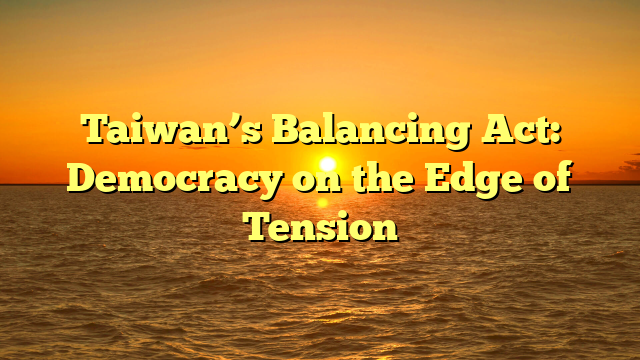In the Taiwan Strait, one of the world’s most dangerous flashpoints, politics and identity intersect with global power rivalry. Taiwan’s 2025 presidential elections, which brought pro-sovereignty leader Lai Ching-te to power, have naga169 login reignited tensions with Beijing — and tested Washington’s strategic patience.
China has escalated military drills around the island, while the United States increased arms deliveries and reaffirmed its “rock-solid” support. Yet both sides stop short of open conflict, wary of triggering a global crisis.
For Taiwan’s government, the challenge is existential: maintaining de facto independence without crossing Beijing’s red lines. “We must safeguard democracy without inviting war,” Lai declared in his inaugural address. His administration prioritizes defense modernization, digital resilience, and diversification of trade away from China.
The island’s economy — a hub for semiconductor production — remains vital to the global supply chain. As geopolitical tensions rise, Western allies seek to “friend-shore” chip manufacturing, reducing dependence on Taiwan. But analysts warn this could weaken the island’s strategic leverage.
Meanwhile, domestic politics reveal a divided society. Younger voters push for stronger national identity, while business elites advocate pragmatic engagement with China. The result is a delicate balance between idealism and survival.
As Beijing tightens pressure and Washington recalibrates, Taiwan’s fate may become the ultimate test of democracy’s endurance under authoritarian shadow — a drama watched by the entire world.


